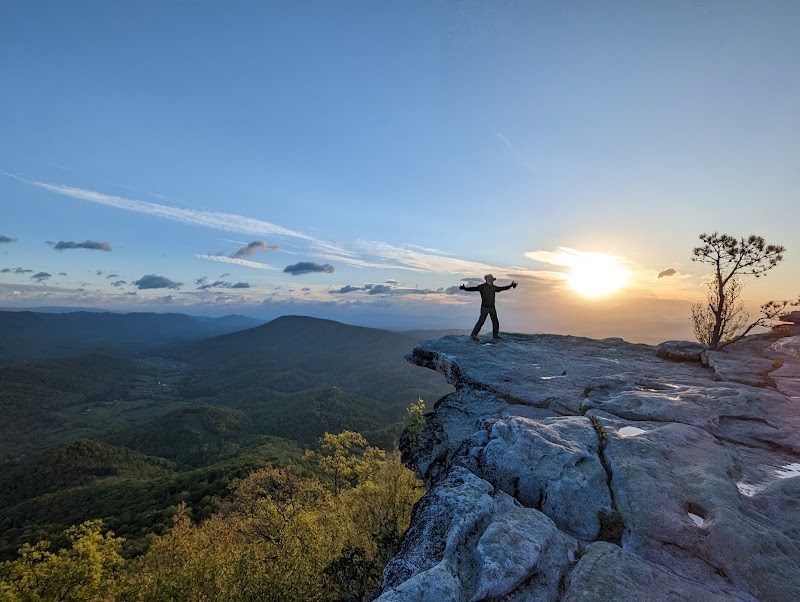
Raystown Watershed Festival: Adventure and Awareness in McConnellsburg, PA
Experience the Raystown Watershed Festival in McConnellsburg, PA, where outdoor adventure meets environmental education. From hiking forest trails and kayaking the river to community events focused on watershed conservation, it’s an exciting, hands-on way to connect with the region’s natural forces.
Stay Hydrated on the Trail
Carry at least one liter of water to maintain energy and focus during hikes, even if water stations are available nearby.
Choose Durable Footwear
Select breathable, waterproof trail shoes or boots to handle wet, rocky, and uneven terrain comfortably.
Arrive Early for Programming
Festivities and educational talks start in the morning; arriving early ensures full access to activities and fewer crowds.
Prepare for Variable Weather
Pack a lightweight rain jacket and dress in layers to adapt quickly to shifting conditions common in the fall season.
Raystown Watershed Festival: Adventure and Awareness in McConnellsburg, PA
The Raystown Watershed Festival in McConnellsburg, Pennsylvania, stands as a vibrant celebration of the region’s outdoors and water resources. Set alongside the rushing waters of Raystown Branch Juniata River, the festival challenges visitors to engage directly with nature’s pulse—rivers daring you to respect their force, and forest trails pushing forward underfoot with every step.
Held annually, this event offers a mix of educational activities, outdoor adventures, and community gatherings designed for both casual nature lovers and seasoned adventurers. Attendees can expect hands-on demonstrations, guided hikes along local trails ranging from flat riverbanks to rugged hillsides, and water-based activities like kayaking or fly-fishing clinics that highlight the watershed’s critical role.
The terrain surrounding McConnellsburg features moderate elevation changes—trails commonly average a 300 to 500 feet ascent over a 3 to 5-mile distance. Paths wind through hardwood forests where sunlight filters unevenly, and wildflowers nod quietly, with occasional open ridges revealing sweeping views of the valley below. The underfoot conditions vary from packed dirt to rocky stretches, wet in places after rains, requiring sturdy footwear and attention.
Practical aspects of attending the festival include planning for hydration—water stations dot the festival area, but carrying a bottle during hikes is advised. Footwear needs to be reliable for mixed terrain; waterproof boots or trail shoes provide the best balance. Early fall usually offers the most comfortable climate, reducing risks of summer heat or winter chill.
This event isn't just a celebration but an invitation to study the watershed’s environmental health and the community’s role in preservation. Talks on stream conservation, soil health, and local wildlife underscore the natural elements’ fierce independence and fragility. As you explore, say on the interpretive trails or by the river’s edge, the water pulls you along, murmuring stories of its journey toward Raystown Lake.
Timing your visit is key: Saturdays offer the most programming and local food vendors, adding a cultural flavor to the outdoor experience. Capture moments at sunrise or sunset when the light turns gold, especially from the higher viewpoints near the festival grounds where the river slices through forested hills.
Whether kayaking a stretch of the Raystown Branch, trying your hand at casting, or simply wandering the festival grounds, the event balances spirited exploration with educational depth. It’s a chance to meet the watershed in all its complexity—alive, demanding respect, and ready to reward those prepared to meet it on its terms.
Nearby Trips
All Adventures
Boat Charters
Water Activities
Adventures near McConnellsburg, Pennsylvania
Discover the unique and memorable adventures that make McConnellsburg, Pennsylvania special.
Frequently Asked Questions
What is the main focus of the Raystown Watershed Festival?
The festival emphasizes education about the local watershed's ecology and conservation combined with outdoor recreational activities like hiking, kayaking, and fishing to connect visitors with the environment.
Are there guided hikes available during the festival?
Yes, guided hikes are a key part of the festival schedule, offering insights into local flora, fauna, and watershed health while navigating moderate forest trails with varying elevations.
Is the festival suitable for families with children?
Absolutely; many family-friendly workshops and activities are offered, including nature crafts, fishing clinics, and interactive presentations designed for young adventurers.
What wildlife might I see at the festival?
Watch for white-tailed deer, a variety of songbirds, and river wildlife such as beavers and herons. Early mornings or evenings increase your chances of wildlife encounters.
What should I know about weather during the festival?
Fall brings mild temperatures but can switch quickly. Dressing in layers and packing rain gear is advised to stay comfortable throughout the day.
Are there any historical or cultural events tied to the festival?
Yes, the festival also highlights the region’s Native American heritage and early settler history, offering presentations and displays that connect natural landscapes to cultural stories.
Recommended Gear
Water Bottle or Hydration Pack
Keeping hydrated is critical for safety and endurance, especially while hiking or paddling.
Waterproof Trail Shoes or Boots
Protect feet from wet and rocky terrain, maintaining grip and comfort throughout the event.
Layered Clothing
Adapt quickly to changing temperatures and weather during outdoor activities.
Insect Repellent
Protects against mosquitoes and ticks, common in warmer months near water and forest.
Local Insights
Hidden Gems
- "The overlook near The Hawn’s Mill Trail offers less-crowded panoramic river views."
- "Small side paths near the riverbank open to quiet spots perfect for reflection or fishing."
Wildlife
- "Keep an eye out for the elusive pileated woodpecker and timid river otters along quieter waterways."
History
"McConnellsburg and the surrounding region have roots in early colonial settlement and Native American trade routes, with the river playing a central role in local development."
